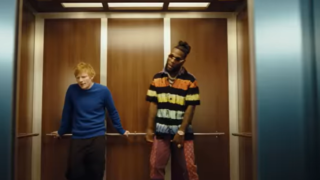José Mourinho was, in the eyes of the Tottenham Hotspur executives who hired him in 2019, the closest thing that soccer had to a guarantee of trophies.
“One of the two best managers in the world,” the club’s chairman, Daniel Levy, had called him, predicting Mourinho would be the catalyst that would complete Tottenham’s transformation from also-ran to contender and, then, into a champion.
And then, after only 15 months — by turns bleak and promising, brief and long, but always tempestuous — Mourinho was gone. His firing on Monday came only six days before he was to have his first chance to fulfill his remit, to lead Spurs into a cup final. Mourinho had won something, anything, at all of his previous clubs: championships at F.C. Porto, Chelsea (twice), Inter Milan and Real Madrid, a Europa League title at Manchester United. Spurs, it turned out, would be his first blank.
The club said on Monday that Mourinho, together with his coaching staff, had departed. Spurs will contest Sunday’s League Cup final under the stewardship of Ryan Mason, a former player and rookie coach. In the club’s view, he stands a better chance of winning than the man who built a reputation on doing nothing else.
If the timing of Mourinho’s departure is damning, though, the decision is not entirely unexpected. Spurs has been listing for several months. Mourinho had managed only one victory in his last five Premier League games. He had endured what he described as one of the most humiliating nights of his career: an exit from the Europa League at the hands of Dinamo Zagreb.
More significantly, Tottenham’s league position had slumped alarmingly, although the scale of its collapse had been masked a little by the more attention-grabbing crisis at Liverpool. Spurs had been atop the Premier League table in early December; a theory had arisen that Mourinho’s conservative, reactive approach — generally considered outdated — was curiously suited to the straitened environment caused by the coronavirus pandemic, a game of empty stadiums and exhausted players.
By the time Spurs drew with Everton on Friday night, though, the club sat seventh in the table, one place lower than it had finished last season. Though one of the Premier League’s four Champions League places were still just about within touching distance — a meaningful thing, once upon a time — there was little sign of a revival.

Mourinho unpacking a lifetime of memories after cleaning out his Tottenham office. Toby Melville/Reuters
More important, Mourinho’s relationship with his squad was curdling. He had retained the support of many of Tottenham’s red-letter players over recent months — most notably Harry Kane — even as he cycled through many of the well-worn tropes of his late-stage career: the intensely personal criticisms of specific players; the seemingly arbitrary ostracisms; the consistent assessment that triumphs were his and disappointments theirs.
In the last few weeks, those final few threads started to give way. After being held to a tie by relegation-haunted Newcastle last week, he was asked why this team could no longer hold on to a lead, as his great sides once did. “Same coach, different players,” he said. Doubts had started to surface about Kane’s future. Even the Korean striker Son Heung-min, affable and adored, seemed unsettled.
The timing might have been unhelpful, but Levy knew he had to act. Few will expect Mason — forced to retire as a player after sustaining a head injury and now building a coaching career — to be given the job full-time, regardless of whether he can record an unlikely victory on Sunday over Pep Guardiola, the other top coach Levy had cryptically mentioned upon hiring Mourinho.
Spurs are likely to target a young, more adventurous manager — the sort the club had in Mauricio Pochettino before he was jettisoned — in the mold of Julian Nagelsmann of RB Leipzig or Leicester City’s Brendan Rodgers.
The future, for Mourinho, is much less certain. It was coincidental, of course, that he should be removed from his post as European soccer tries to come to terms with the future that the owners of 12 of its most illustrious names have mapped out on its behalf, but it was notable how little his ouster altered the course of conversation.
In part, that is because Mourinho’s departure has been brewing. In part, that is because Mourinho is fired, now, with such regularity that it is possible to break the stages of his reign down into distinct parts: the promise of change, the early successes, the infighting, the self-protection, the downward spiral, the dismissal.
But most of all, it is because Mourinho no longer feels like the sort of manager any of the putative members of the new Super League would appoint. He was the closest thing soccer had to a guarantee of trophies. He is not, emphatically, any more.
FEATURED IMAGE: José Mourinho has now been fired by three Premier League clubs. Lee Smith/Action Images, via Reuters
By Rory Smith/The New York Times






